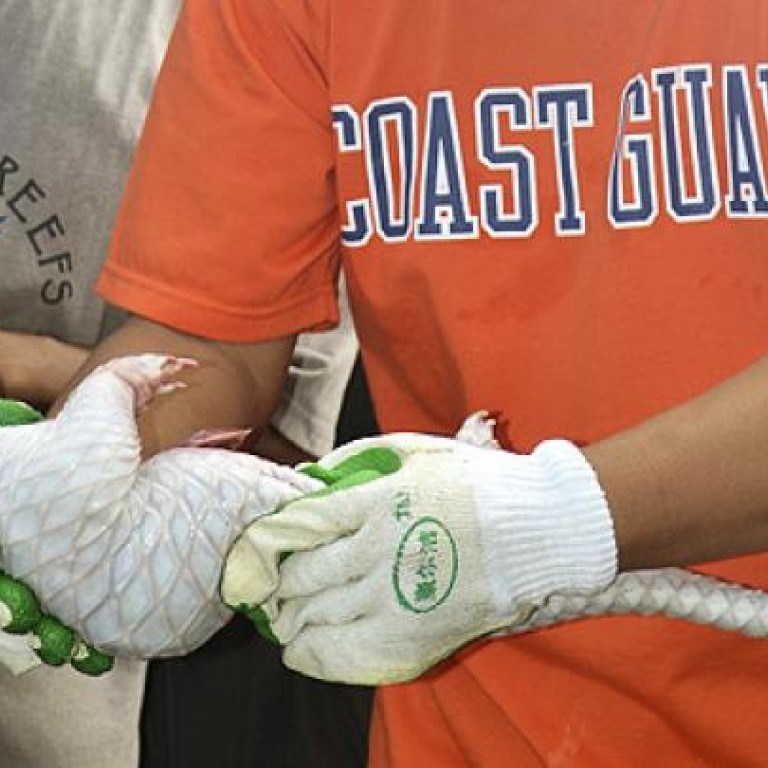
Chinese poachers could face 20 years over pangolins
Twelve suspected Chinese poachers could face up to 20 years in prison for possession of hundreds of dead pangolins or scaly anteaters, Philippine wildlife authorities said on Wednesday.
The boat carrying the 12 Chinese men ran aground on Tubbataha marine park, a Unesco World Heritage-listed coral reef near Palawan, last week.
“We are preparing a case. We are still compiling supporting documents (but) it carries a heavy penalty of 12 to 20 years imprisonment,” Adelina Villena, environment officer of the province of Palawan, said.
Mere possession of the threatened species is basis for criminal charges, regardless of where the pangolins were obtained, said Villena.
All eight species of the insect-eating mammals are protected by international law. Two – the Malaysian and Chinese pangolins – are on the International Union of Conservation of Nature’s “red list” of endangered species.
Prosecutors have already charged the men with illegal poaching and with corruption for attempting to bribe Filipino officials.
The Philippine coast guard said on Monday it had found hundreds of frozen pangolins, individually wrapped in plastic and hidden in sacks in the cargo hold of a Chinese boat.
Pangolins are widely hunted in parts of Asia for their meat, skin and scales and in China they are considered a delicacy and to have medicinal qualities.
The head of the government wildlife bureau, Theresa Mundita Lim said she would visit Palawan this week to conduct tests to determine if the pangolins originated there. The island is the only place in the Philippines where pangolins are found.
“They are very rare and to get that many from Palawan would really impact on the population,” she said.
The Philippine office of the World Wide Fund for Nature condemned the poaching of the pangolins after the men were caught, saying that growing demand in China was wiping the animal out in Southeast Asia.
